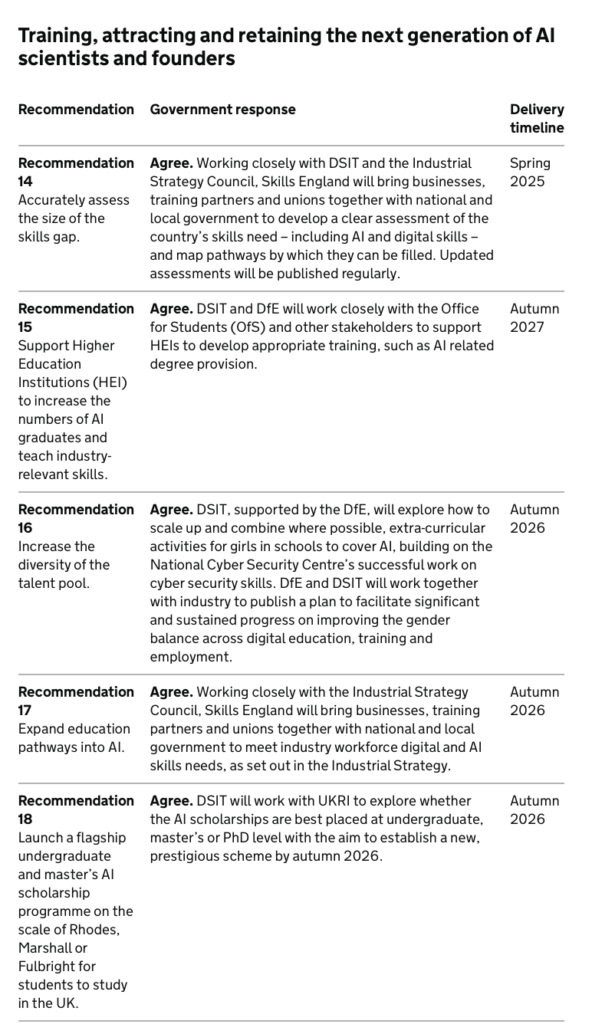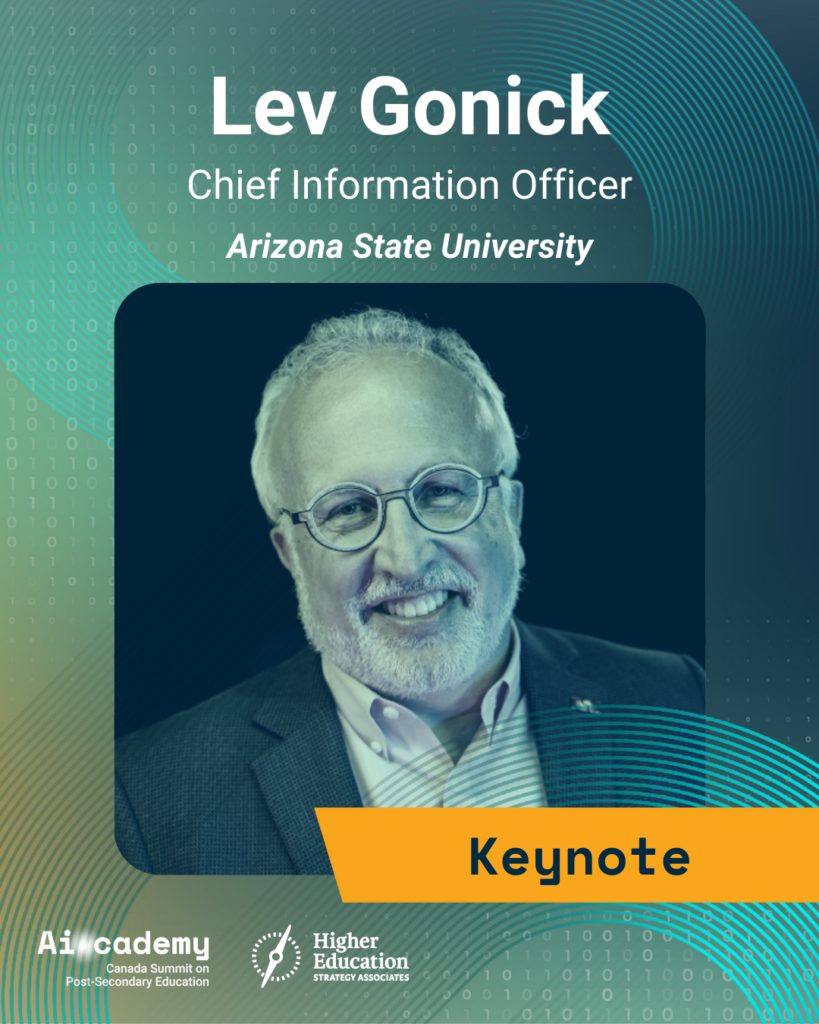Spotlight
Welcome back, readers!
2025 is most definitely starting on a high AI-wise, because we’re only two weeks in, and there are already some major new releases worth taking a look at. I’m sharing a TL;DR with you all below for two of these, in case you are still catching up with the start of the new semester and have not had a chance to keep up with everything happening in the sector.
The US Department of Education’s Office of Educational Technology just released their brief Navigating Artificial Intelligence in Postsecondary Education: Building Capacity for the Road Ahead, which is aimed at supporting institutional leaders overseeing the implementation of AI across multiple areas in their institution. The brief is divided in two main sections: 1) recommendations, guiding questions for leadership and faculty, and resources to help enhance institutional activities, and 2) evidence-based insights on AI integration that notably examine AI’s potential impact on learning environments, career readiness, admissions, enrollment, student advising, student support, digital infrastructure, and faculty development. While the five recommendations included in the brief (see below) aren’t ground-breaking, each recommendation is accompanied by a set of questions for leaders to ask themselves and use to guide their work, as well as relevant resources to support the implementation of the recommendation. Those are where the real value lie. I’d even dare say they’re a must-read for institutional leaders or anyone that’s part of an AI taskforce, working group or committee within their institution.
- Recommendation 1: Establish transparent policies for how AI is used to support operational activities in postsecondary education settings;
- Recommendation 2: Create or expand infrastructure to support the innovative application of AI in instruction, student advising and support, and assessment;
- Recommendation 3: Rigorously test and evaluate AI-driven tools, supports, and services;
- Recommendation 4: Seek collaborative partners for designing and iteratively testing AI models across educational applications;
- Recommendation 5: Review, refine, and supplement program offerings in light of the growing impact of AI on future jobs and career opportunities.
The UK Government’s Department for Science, Innovation and Technology, on its end, released earlier this week the AI Opportunities Action Plan. The document has 50 recommendations for government to grow the UK’s AI sector, drive adoption of AI across the economy to boost growth, and improve products and services. Within the 50 recommendations, the most relevant for us education geeks include accurately assessing the size of the skills gap, supporting higher education institutions to increase the numbers of AI graduates and teach industry-relevant skills, increasing the diversity of the talent pool, expanding education pathways into AI, launching a flagship undergraduate and master’s AI scholarship program for students to study in the UK, and exploring how the existing immigration system can be used to attract graduates from universities producing some of the world’s top AI talent. Since it was led by an independent consultant, this report is quite ambitious, and goes beyond broad, say-nothing statements. And the star of the show? The government’s response. They literally address each of the 50 recommendations and indicate if they agree or not with them, and commit to a delivery timeline. And, spoiler alert – there isn’t a single recommendation that they seem to disagree on. Now, of course, we’ll need to keep an eye on them to see if they walk the talk…
You’ll find the education-specific recommendations from the report, as well as the government’s response, below.


If you find yourself with some free time this week-end and want to catch up even more, you’ll find a bunch of interesting articles from the end of last year at the bottom of this email.
Cheers!
– Sandrine Desforges, Research Associate
Mark Your Calendars
Date: March 6th-7th, 2025
AI-CADEMY: Canada Summit for Post-Secondary Education
There is now less than 50 days left before we kick-off AI-CADEMY: Canada Summit for Post-Secondary Education at the Calgary TELUS Convention Centre! Remaining tickets are selling out fast, so make sure to secure yours ASAP. Ticket sale closes when sold-out, or on February 14th, 2025.
We’re thrilled to be announcing one of our keynote speakers (*drumroll*): LEV GONICK, Chief Information Officer at Arizona State University, a trail-blazer institution for an AI-powered post-secondary education sector, will share thoughts on how AI is transforming education, how the sector should respond, and any lessons learned a year into ASU’s partnership with OpenAI. You certainly do not want to miss this!

You can see our ever-evolving list of speakers here.
AI-CADEMY is organized in partnership with Bow Valley College and the Southern Alberta Institute of Technology, and with the support of our platinum sponsors Duolingo and Studiosity, our gold sponsor Kwantlen Polytechnic University, our silver sponsors Encore, Pearson and Turnitin, and our bronze sponsors ApplyBoard and Quizziz.
Interested in becoming a sponsor or exhibitor? Learn more here.
Additional Resources
|
More Information
Want more? Consult HESA’s Observatory on AI Policies in Canadian Post-Secondary Education.
This email was forwarded to you by a colleague? Make sure to subscribe to our AI-focused newsletter so you don’t miss the next ones.

 Tweet this post
Tweet this post
